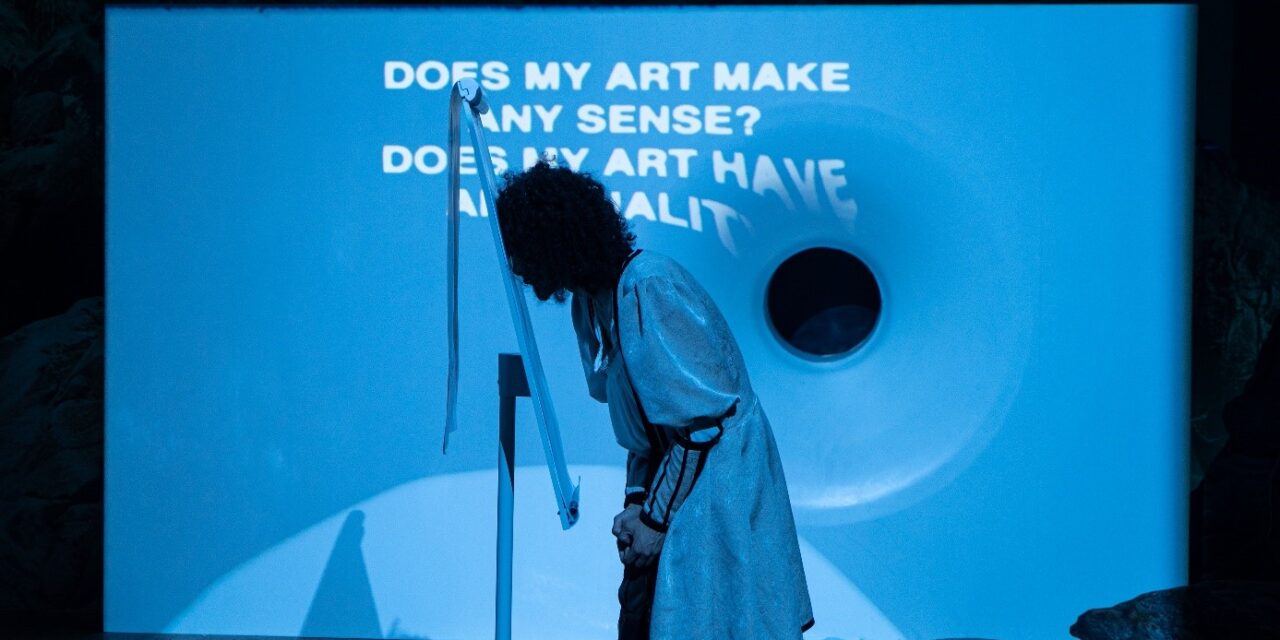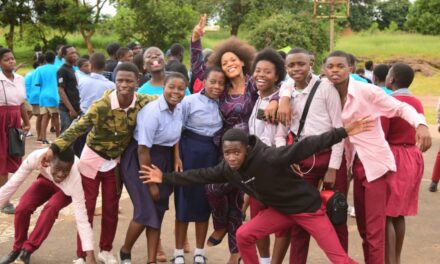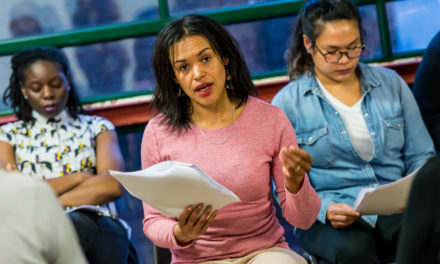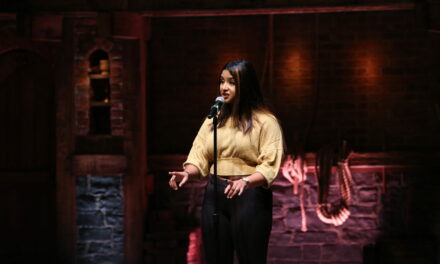Cursed problems often require unorthodox solutions, ones that transgress or delineate anew previously set boundaries – and this is why we seek them in a theatre which wants to push the history of ideas further, in one that isn’t afraid of radicality. Initially slated for March, the 4th reiteration of Generation After – an international audience-aimed showcase of Polish younger but already established theatre creators whose works advocate the possibility of change – opens up online on 14 September.
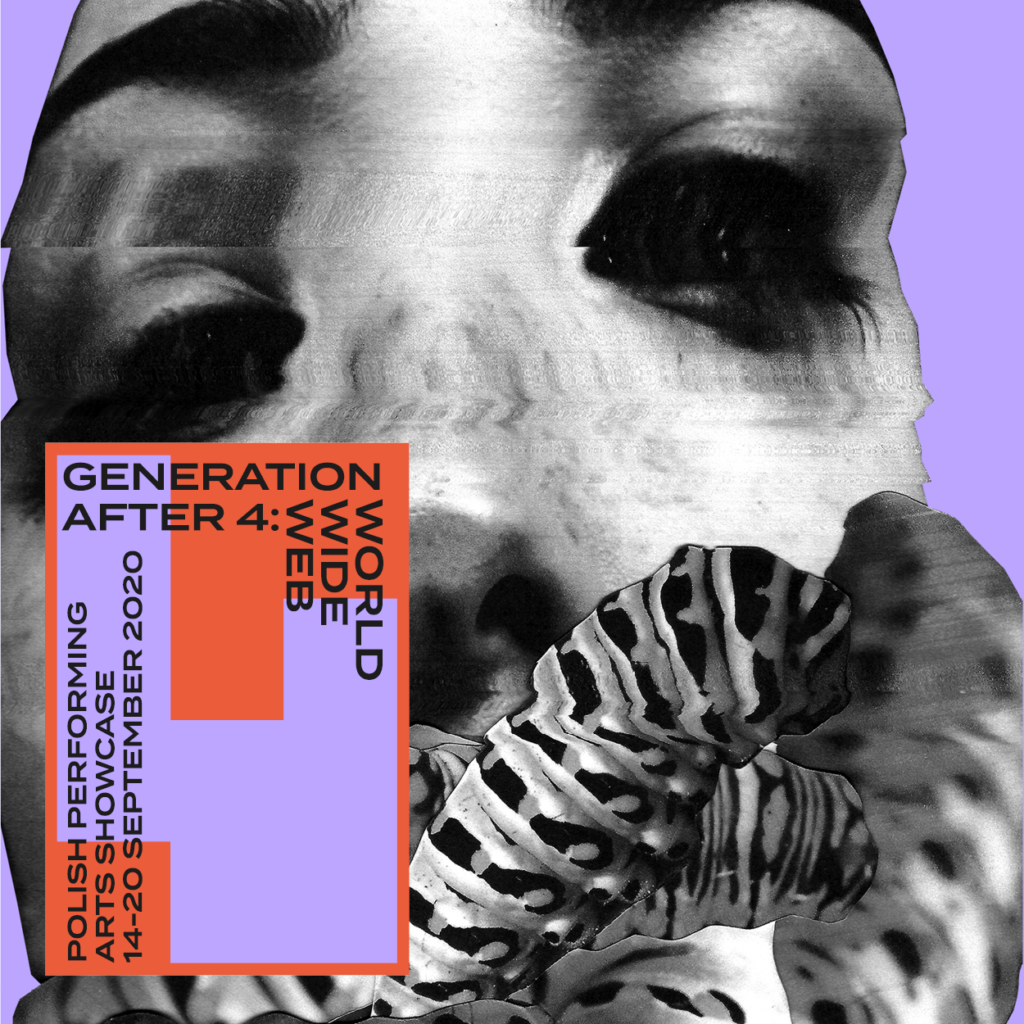
The festival poster. Courtesy of Generation After.
The twelve included shows play to general acclaim and in front of vast audiences and as such guarantee good representation of the younger and braver corners of Polish stages. The festival includes performances (for not only theatrical works, but dance and performance art also play an equal part in the programme) from the stages of Nowy Teatr, TR Warszawa, Powszechny Theatre, Komuna Warszawa, and Studio theatre gallery; and those brought in through cooperation with Ujazdowski Castle and Zachęta National Gallery, which regularly host performance art and dance.
The names of Jędrzej Piaskowski (Jesus from Nowy Teatr with its wonderful cast including the starlet ambassador of Polish movie acting, Bartosz Bielenia), Grzegorz Jaremko (a new take on Woyzeck, where Büchner meets contemporary masculinity), Katarzyna Kalwat (Rechnitz. Opera – The Exterminating Angel, a semi-operatical work with music by Wojtek Blecharz, based on the text of Elfriede Jelinek), Anna Smolar (Erasmus, a post-operatic portrait of the thinker and an elegy for humanistic ideals), and Magda Szpecht (Always Coming Home, based on the science fiction novel by Le Guin) sum up not to an Augean stable, but rather to la crème de la crème of Poland’s contemporary and new theatre creatives.
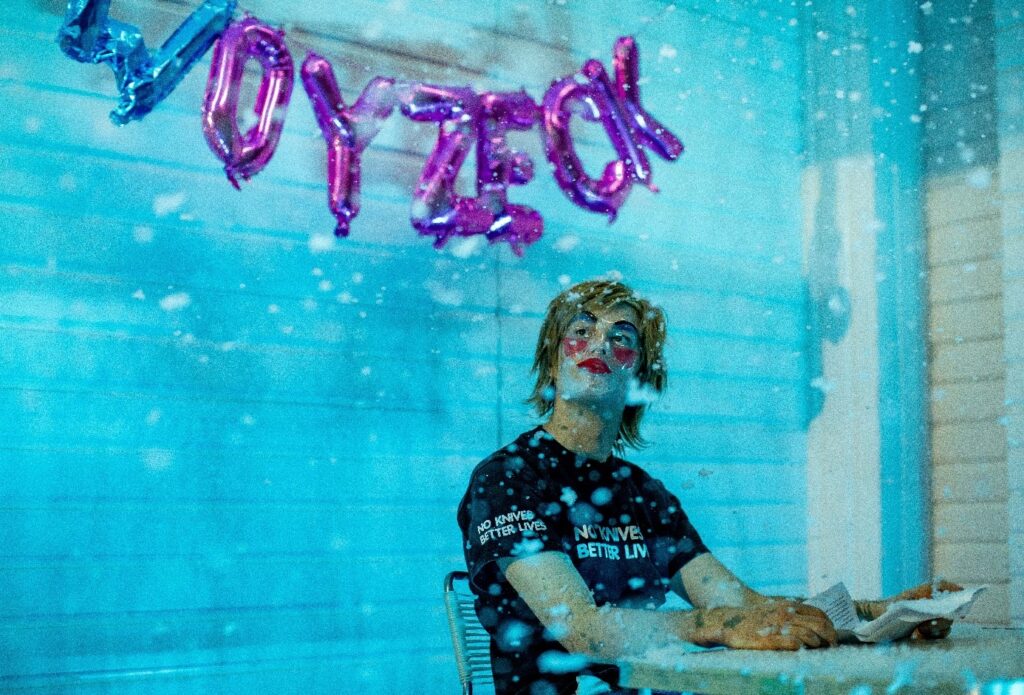
Jan Dravnel in Woyzeck, dir. by Grzegorz Jaremko, TR Warszawa. Photo by Marcin Oliva Soto. Courtesy of Generation After.
Additionally, due to its being currently unable to be presented at a larger stage live, the latest political diagnosis of Krystian Lupa – Capri. The Island of Fugitives, based on Malaparte’s novels Kaputt and La Pelle – is included in the programme as well. Dance and performance are represented by Wojciech Grudziński (Rodos), Agnieszka Kryst (Archeresses), Anna Karasińska (I will try to tell you, but it won’t go well), Anna Nowak (This is an exhibition and I’m an exhibitionist), and Ramona Nagabczyńska (Body Parts).
The festival, though, doesn’t really “go live” as all shows will be pre-recorded, yet that cannot be said about the talks and networking sessions. The organisers give the promise of using pandemic-imposed limitations as opportunities – and live up to it in terms of scheduling, as being online-based eliminates the unwanted commuting between different stages, and allows for a smoothly run 10-to-15-minutes one-on-one talks with the artists and representatives of institutions available to all guests, a sure highlight of your experience.
The festival isn’t centred around one particular issue, what the artists have in common are radicality and a well-deserved mandate to represent Polish new theatre. Even if these shows are ones you’re already familiar with for some have successfully featured also abroad, it’s worth it for its sheer generation-defining potential – it’s like a guide, or an introductory anthology curated by the authors credited for Polish new radical theatre. And for its prophetic ability to tell what the future will be like shall societies follow the progressive route and the new artistic methods replace the old and time-worn. After all, theatre can indeed be an astute observer of reality.
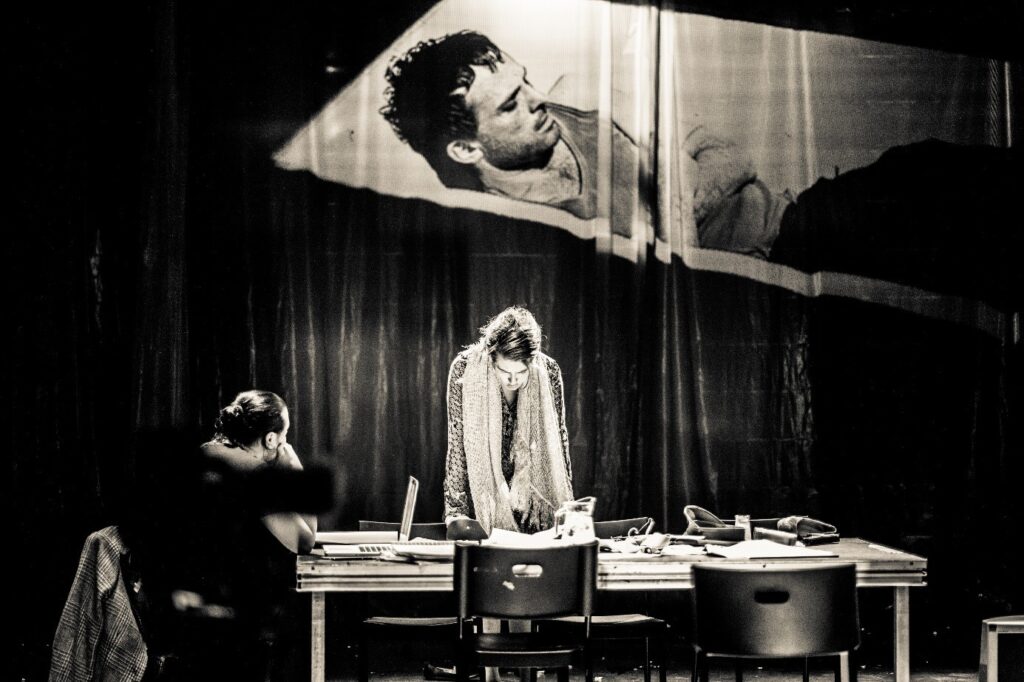
Rechnitz. Opera – The Exterminating Angel, dir. by Katarzyna Kalwat, TR Warszawa. Photo by Anna Tomczyńska. Courtesy of Generation After.
That being said, each day lets us peek inside the minds of the most radical artists working in new Polish theatre from a different angle. What the curators (Olga Drygas, Piotr Gruszczyński, Joanna Nuckowska) have borne in mind is that the medium of stream isn’t one that works for all performances equally well, and thus the ones included were chosen for their power to impact the viewer even through the medium of a computer screen, and convey such liveliness that doesn’t go dim even when it isn’t witnessed live.
The programme is divided into two sections: Encounters and Performances: the first being the numerous networking opportunities and live-streamed events (covering a dispatch from Polish “in-pandemic theatre” and the future of performing, and one-on-ones with Local Artists and Local Players), the latter being the actual shows.
Importantly, each performance is available for online viewing for 24 hours. What’s also included are live tours of the participating institutions – for the full schedule and directors’ profiles, click here. The registration form for guests – which will enable you to receive the daily newsletter and to be emailed an access code to the streams – is available here.
The natural aim of the festival is to facilitate cooperation above borders and to present Polish new theatre to a wider international audience and as such it presents itself as a major regional industry event which promises a blossom of supranational projects at the same time compensating for the slow reopening (let them not be soon closing!) of theatres for audiences. In short: some quite staggeringly brilliant shows are on offer for free, and you’re not going to miss it.
This post was written by the author in their personal capacity.The opinions expressed in this article are the author’s own and do not reflect the view of The Theatre Times, their staff or collaborators.
This post was written by Franciszek Bryk.
The views expressed here belong to the author and do not necessarily reflect our views and opinions.

